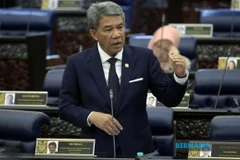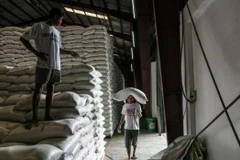According to the China-ASEAN Trade Area QuarterlyReport released by the China-ASEAN Business Council in Beijing on April30, China’s export to the ten-member group rose by 6.8 percent to over56.2 billion USD while its import expanded by 2.9 percent to nearly 49billion USD.
During the reviewed period, China imported over19.6 billion USD worth of electro-mechanics from ASEAN membercountries, except from Brunei, Cambodia and Laos, down 7.91 percent,making up 40.17 percent of the country’s total import value to the bloc.
Meanwhile, China shipped nearly 48.6 billion USD worth ofthese products to ASEAN, representing an increase of 8.75 percent.
Other goods such as minerals, rubber, plastics, garments and textiles also dominated trade ties between the two sides.
Between January and March, China’s direct and non-financialinvestment in ASEAN totalled 1.05 billion USD. ASEAN also injectednearly 1.97 billion USD in the country.
The two sides also inked new projects worth 5.64 billion USD in the first three months of this year.
Apart from such statistics, the report also pointed out prospects andorientations for cooperation between China and ASEAN as well asdifficulties hindering the bilateral trade ties.-VNA
























